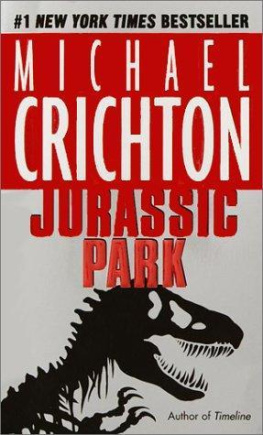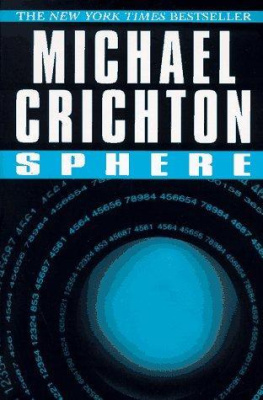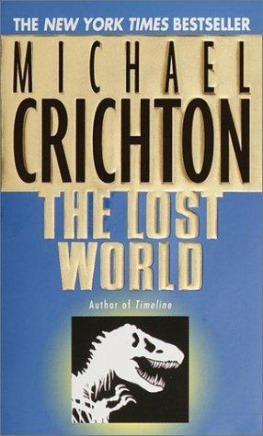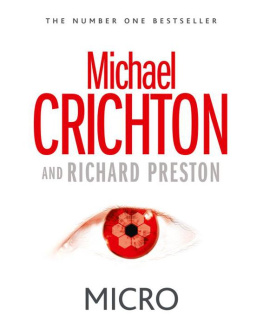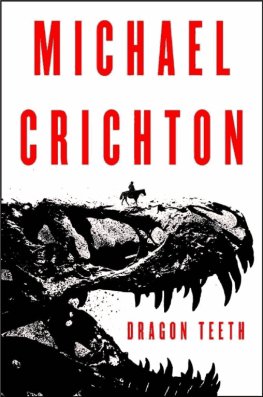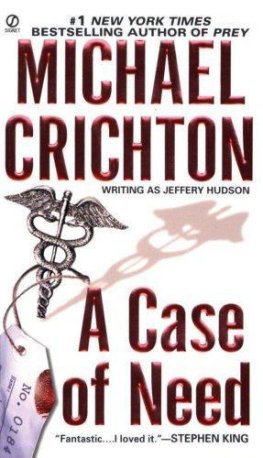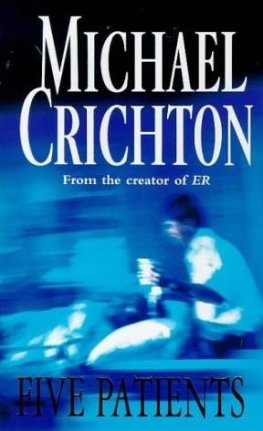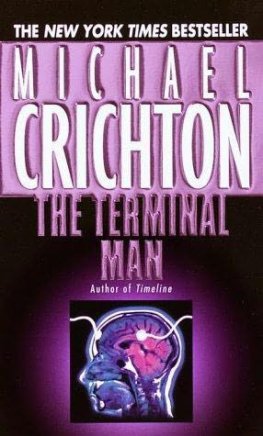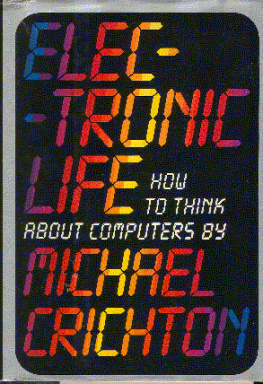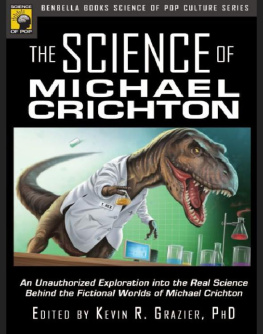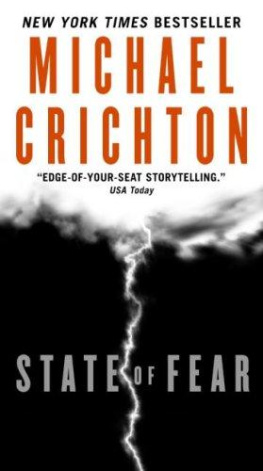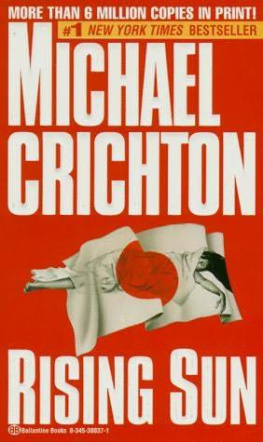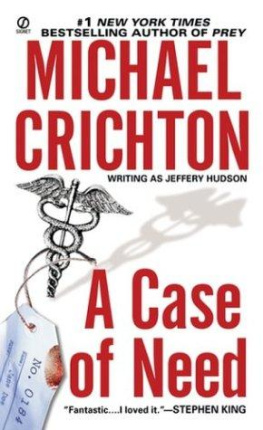Michael Crichton - Timeline
Here you can read online Michael Crichton - Timeline full text of the book (entire story) in english for free. Download pdf and epub, get meaning, cover and reviews about this ebook. year: 2003, publisher: Ballantine Books, genre: Detective and thriller. Description of the work, (preface) as well as reviews are available. Best literature library LitArk.com created for fans of good reading and offers a wide selection of genres:
Romance novel
Science fiction
Adventure
Detective
Science
History
Home and family
Prose
Art
Politics
Computer
Non-fiction
Religion
Business
Children
Humor
Choose a favorite category and find really read worthwhile books. Enjoy immersion in the world of imagination, feel the emotions of the characters or learn something new for yourself, make an fascinating discovery.

- Book:Timeline
- Author:
- Publisher:Ballantine Books
- Genre:
- Year:2003
- Rating:4 / 5
- Favourites:Add to favourites
- Your mark:
- 80
- 1
- 2
- 3
- 4
- 5
Timeline: summary, description and annotation
We offer to read an annotation, description, summary or preface (depends on what the author of the book "Timeline" wrote himself). If you haven't found the necessary information about the book — write in the comments, we will try to find it.
Timeline — read online for free the complete book (whole text) full work
Below is the text of the book, divided by pages. System saving the place of the last page read, allows you to conveniently read the book "Timeline" online for free, without having to search again every time where you left off. Put a bookmark, and you can go to the page where you finished reading at any time.
Font size:
Interval:
Bookmark:
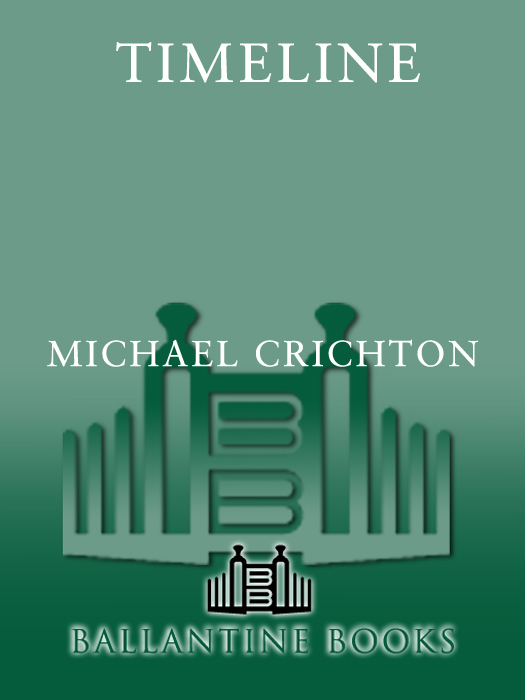
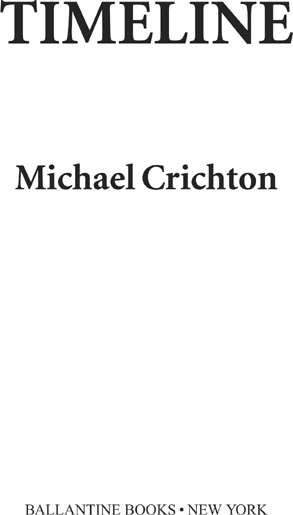
COMPULSIVE READING
BRILLIANTLY IMAGINED
A fast-paced story [that] keeps the reader turning the pages Crichton has so perfected the fusion thriller with science fiction that his novels define the genre.
Los Angeles Times
The present and the long-ago past collide. [as] three young historians whisk themselves back to fourteenth-century feudal France to rescue a friendand engulf themselves in all manner of mind-blowing intrigue.
Chicago Sun-Times
In this book, futuristic quantum technology kicks into reverse, colliding with European history. Cutting-edge scientists and scholars from 1999 go back six hundred years to encounter black knights, brigands, broadswords, and plenty of boiling oil. Readers will love this book for the way it commingles old and new: chivalry and physics, cauldrons and computers, photons and gunpowder.
USA Today
Riveting Truly fascinating A thrilling story of cutting-edge technology Crichton once more enlightens us as he entertains us.
Chattanooga Times
A good, action-packed romp that ranks up there with the Andromeda Strain and The Terminal Man.
The Cleveland Plain Dealer
Wonderful Superb [A] gripping Crichton fantasy adventure.
Forbes
A FAST-PACED,
ACTION-PACKED ADVENTURE
Sparkling narrative Crichton scores again with Timeline.
Oregonian
Readers turn to Michael Crichtons novels for entertainment with relentless drive. The problem for the astute reader of Timeline will be quelling the urge to turn pages ever faster to see how things end. [A] thriller that will keep the brain in high gear long after the final page is turned.
San Antonio Express
This is what Crichton does best: intermingling his prodigious research with his cut-to-the-chase writing to tell stories that become blockbuster books. There is a deftness and a grace to his prose. His descriptions are as sharp and precise as scalpels.
Buffalo News
A heart-pounding adventure with Timeline, Crichton has written his best book since Jurassic Park . Crichton is a master at explaining complex concepts in simple terms. His plot is intriguing and his well-researched history and science are certain to prompt discussions. Highly recommended.
Library Journal
One of the great storytellers of our age The best Michael Crichton novels are edifying reads, whose gripping plots contain real ideas.
Newsday
Gripping A swashbuckling adventure Fast-paced, compelling.
The Courier (Conroe, TX)
By Michael Crichton
Fiction:
THE ANDROMEDA STRAIN
THE TERMINAL MAN
THE GREAT TRAIN ROBBERY
THE 13TH WARRIOR
(previously published as EATERS OF THE DEAD)
CONGO
SPHERE
JURASSIC PARK
RISING SUN
DISCLOSURE
THE LOST WORLD
AIRFRAME
TIMELINE
PREY
Nonfiction:
FIVE PATIENTS
JASPER JOHNS
ELECTRONIC LIFE
TRAVELS
For Taylor
All the great empires of the future will be empires of the mind.
WINSTON CHURCHILL , 1953
If you dont know history, you dont know anything.
EDWARD JOHNSTON , 1990
Im not interested in the future. Im interested in the future of the future.
ROBERT DONIGER , 1996
A hundred years ago, as the nineteenth century drew to a close, scientists around the world were satisfied that they had arrived at an accurate picture of the physical world. As physicist Alastair Rae put it, By the end of the nineteenth century it seemed that the basic fundamental principles governing the behavior of the physical universe were known. Indeed, many scientists said that the study of physics was nearly completed: no big discoveries remained to be made, only details and finishing touches.
But late in the final decade, a few curiosities came to light. Roentgen discovered rays that passed through flesh; because they were unexplained, he called them X rays. Two months later, Henri Becquerel accidentally found that a piece of uranium ore emitted something that fogged photographic plates. And the electron, the carrier of electricity, was discovered in 1897.
Yet on the whole, physicists remained calm, expecting that these oddities would eventually be explained by existing theory. No one would have predicted that within five years their complacent view of the world would be shockingly upended, producing an entirely new conception of the universe and entirely new technologies that would transform daily life in the twentieth century in unimaginable ways.
If you were to say to a physicist in 1899 that in 1999, a hundred years later, moving images would be transmitted into homes all over the world from satellites in the sky; that bombs of unimaginable power would threaten the species; that antibiotics would abolish infectious disease but that disease would fight back; that women would have the vote, and pills to control reproduction; that millions of people would take to the air every hour in aircraft capable of taking off and landing without human touch; that you could cross the Atlantic at two thousand miles an hour; that humankind would travel to the moon, and then lose interest; that microscopes would be able to see individual atoms; that people would carry telephones weighing a few ounces, and speak anywhere in the world without wires; or that most of these miracles depended on devices the size of a postage stamp, which utilized a new theory called quantum mechanicsif you said all this, the physicist would almost certainly pronounce you mad.
Most of these developments could not have been predicted in 1899, because prevailing scientific theory said they were impossible. And for the few developments that were not impossible, such as airplanes, the sheer scale of their eventual use would have defied comprehension. One might have imagined an airplanebut ten thousand airplanes in the air at the same time would have been beyond imagining.
So it is fair to say that even the most informed scientists, standing on the threshold of the twentieth century, had no idea what was to come.
:
Now that we stand on the threshold of the twenty-first century, the situation is oddly similar. Once again, physicists believe the physical world has been explained, and that no further revolutions lie ahead. Because of prior history, they no longer express this view publicly, but they think it just the same. Some observers have even gone so far as to argue that science as a discipline has finished its work; that there is nothing important left for science to discover.
But just as the late nineteenth century gave hints of what was to come, so the late twentieth century also provides some clues to the future. One of the most important is the interest in so-called quantum technology. This is an effort on many fronts to create a new technology that utilizes the fundamental nature of subatomic reality, and it promises to revolutionize our ideas of what is possible.
Quantum technology flatly contradicts our common sense ideas of how the world works. It posits a world where computers operate without being turned on and objects are found without looking for them. An unimaginably powerful computer can be built from a single molecule. Information moves instantly between two points, without wires or networks. Distant objects are examined without any contact. Computers do their calculations in other universes. And teleportationBeam me up, Scottyis ordinary and used in many different ways.
Font size:
Interval:
Bookmark:
Similar books «Timeline»
Look at similar books to Timeline. We have selected literature similar in name and meaning in the hope of providing readers with more options to find new, interesting, not yet read works.
Discussion, reviews of the book Timeline and just readers' own opinions. Leave your comments, write what you think about the work, its meaning or the main characters. Specify what exactly you liked and what you didn't like, and why you think so.

